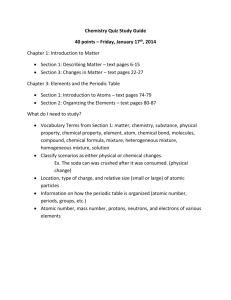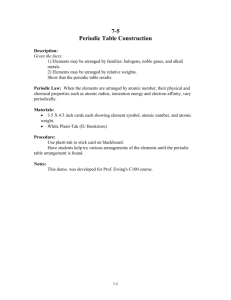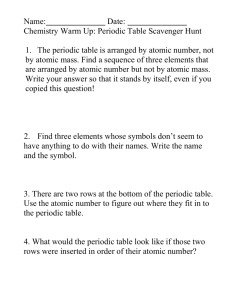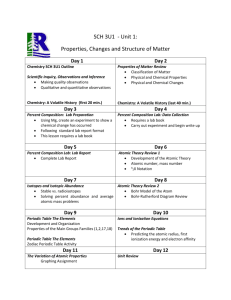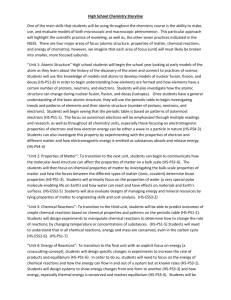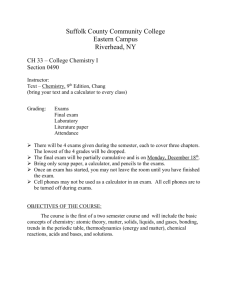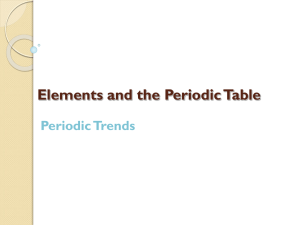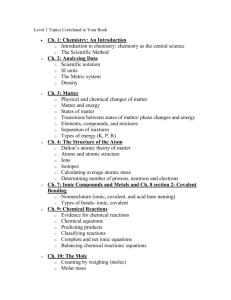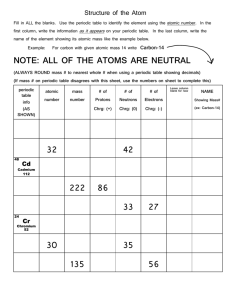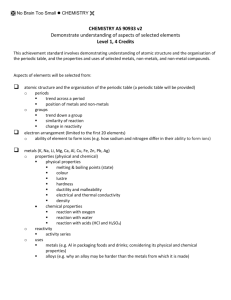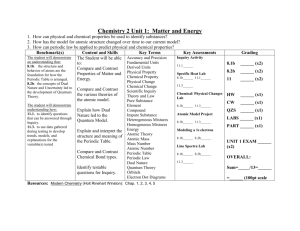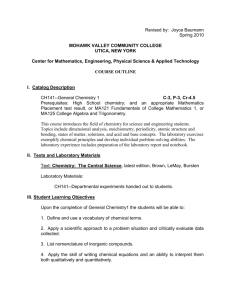Course goals
advertisement
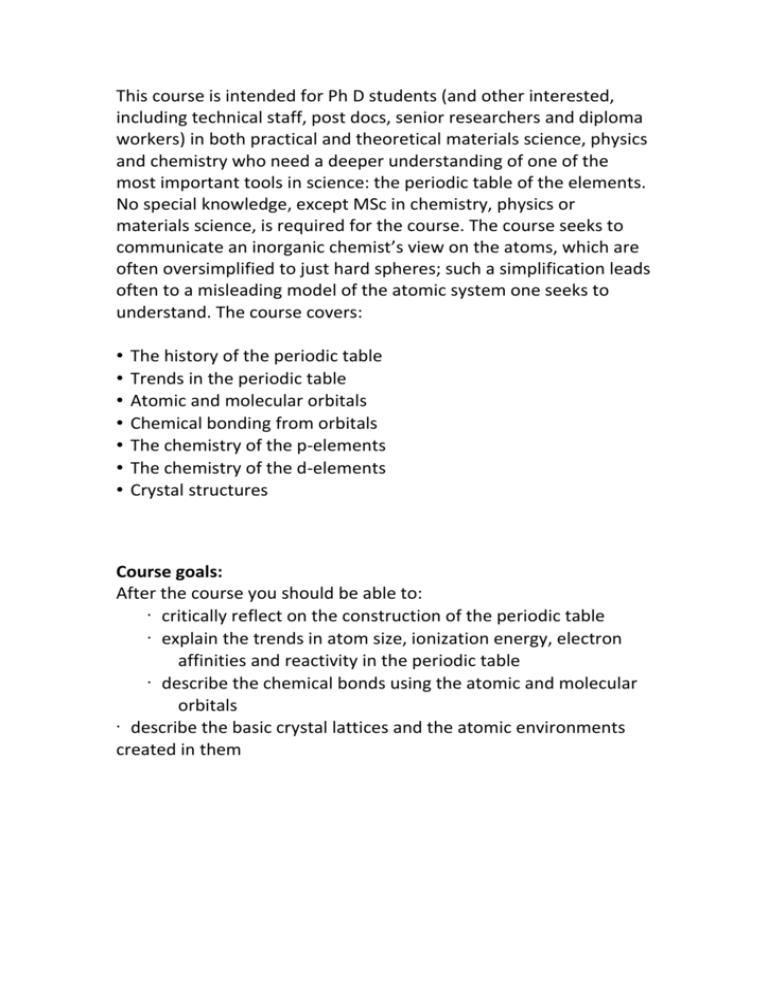
This course is intended for Ph D students (and other interested, including technical staff, post docs, senior researchers and diploma workers) in both practical and theoretical materials science, physics and chemistry who need a deeper understanding of one of the most important tools in science: the periodic table of the elements. No special knowledge, except MSc in chemistry, physics or materials science, is required for the course. The course seeks to communicate an inorganic chemist’s view on the atoms, which are often oversimplified to just hard spheres; such a simplification leads often to a misleading model of the atomic system one seeks to understand. The course covers: • • • • • • • The history of the periodic table Trends in the periodic table Atomic and molecular orbitals Chemical bonding from orbitals The chemistry of the p-elements The chemistry of the d-elements Crystal structures Course goals: After the course you should be able to: ·critically reflect on the construction of the periodic table ·explain the trends in atom size, ionization energy, electron affinities and reactivity in the periodic table ·describe the chemical bonds using the atomic and molecular orbitals ·describe the basic crystal lattices and the atomic environments created in them
